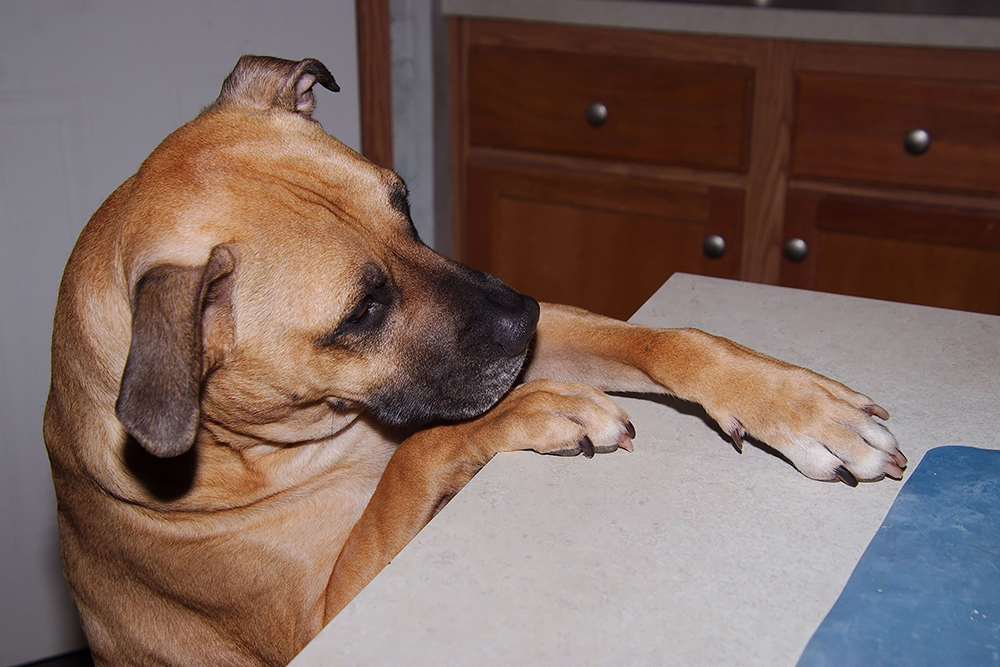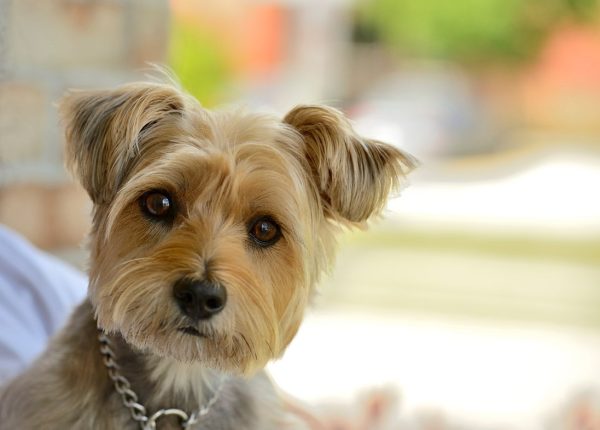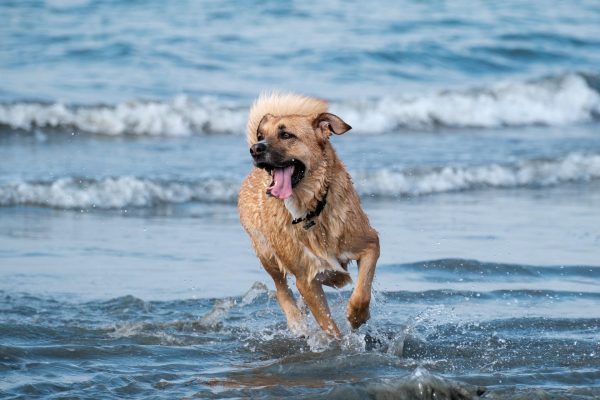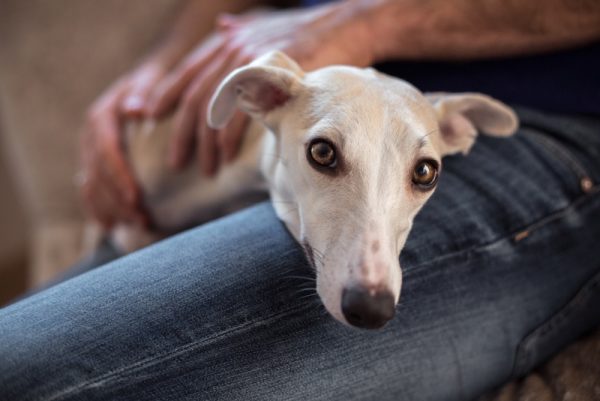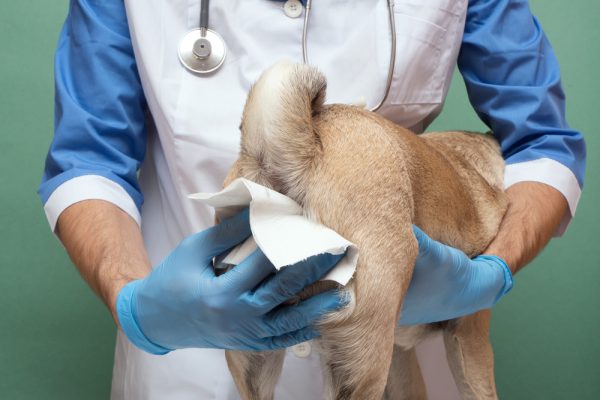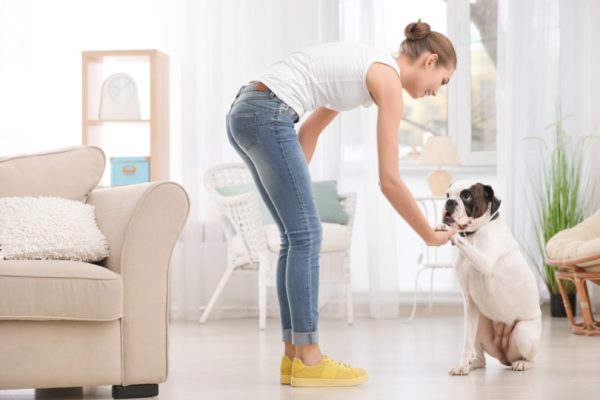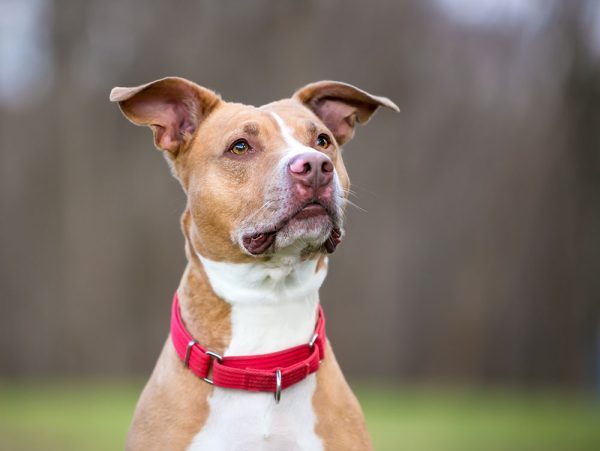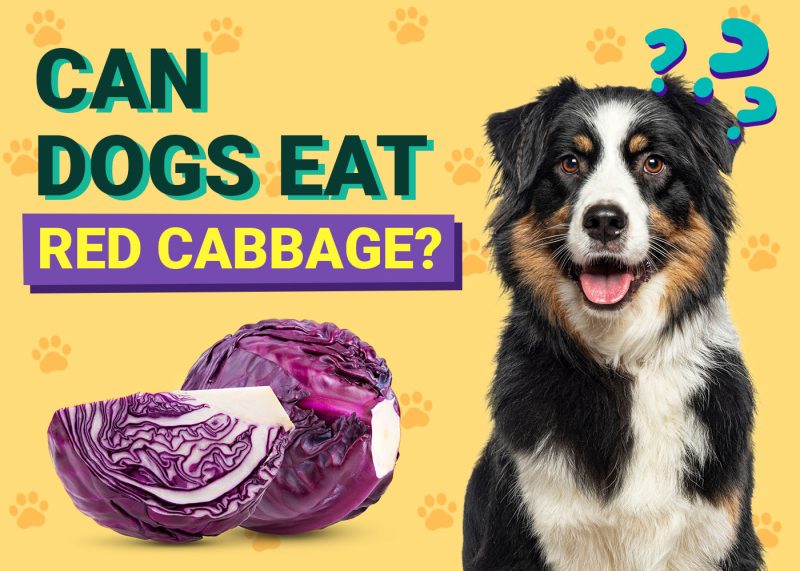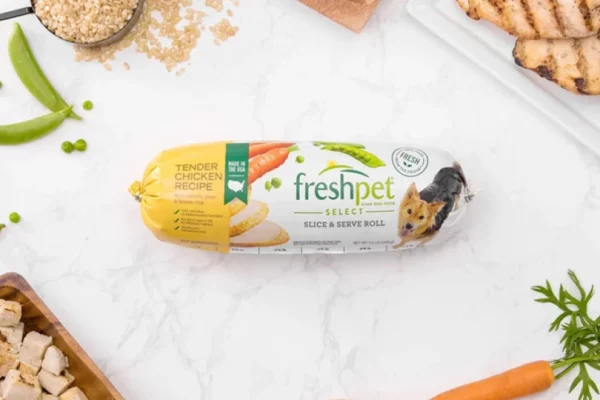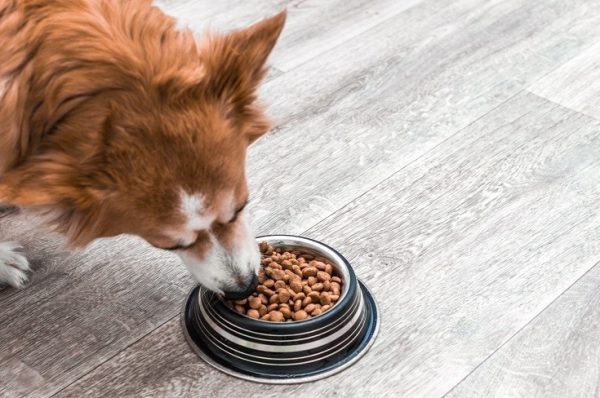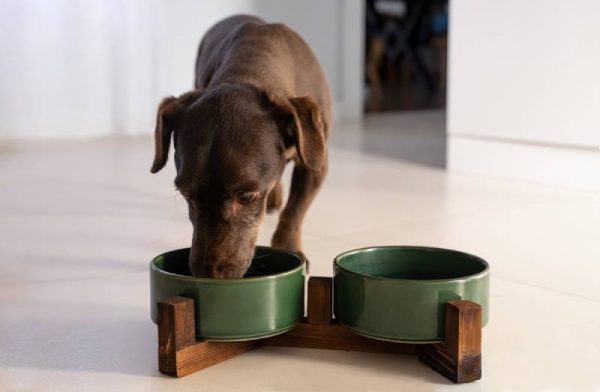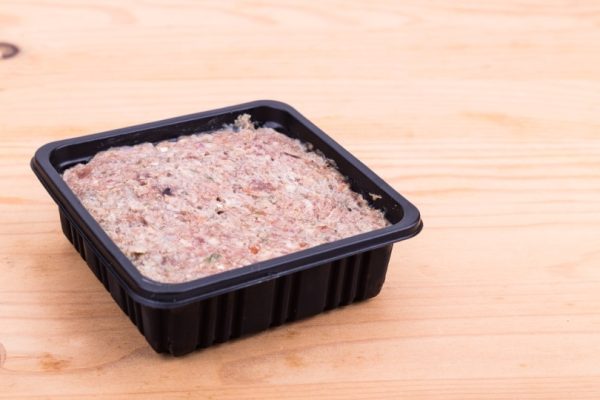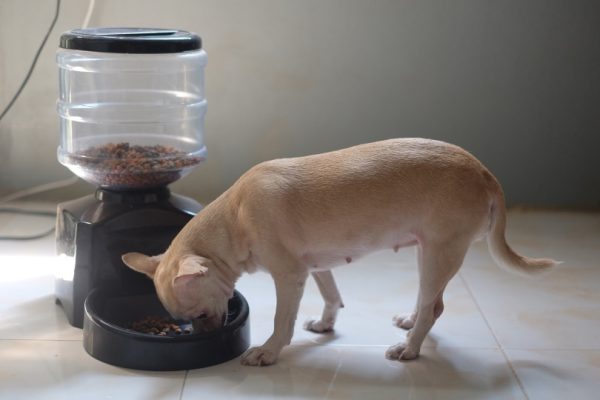In this article
Our canine companions can be sneaky at times, especially when it comes to food. Most dogs love food and love to eat, so they’ll break out the puppy dog eyes as often as they need to get treats and bites of your food. But what do you do if your dog is stealing food?
Whether a pup is stealing food from off the counter or from another animal in the home, something should be done. Stealing food off the counter could lead to your dog eating something toxic or dangerous to them. Stealing food from other animals could mean another pet isn’t getting enough to eat. So, how do you stop a dog from stealing food? With these tips and tricks!

Why Do Dogs Steal Food?
There are a handful of reasons why dogs steal food, and determining the reason will help you figure out the best way to get your dog to stop stealing food. The main four reasons for food stealing are:
- Social Needs: Dogs have an intrinsic social component towards mealtime. If they witness a pack member (you) eating, they would often want in on the action.
- Hunger: An underfed or inappropriately fed dog might display more hunger than an appropriately fed pet.
- Reward: Dogs fond of stealing food off the counter or table may do so because it might be a form of an instant reward perpetuated by you. They’re self-reinforcing their behavior—steal food and get a delicious treat!
- Boredom: Much like we tend to mindlessly snack when bored, our four-legged friends may do the same.
- Resource Guarding: Resource guarding is a behavioral issue that could lead a dog to be protective over food and steal it from others in the home. It is sometimes referred to as “possessive aggression”.
Once you know why your dog is stealing food, you’ll have an easier time stopping them from engaging in this behavior. However, some general tips and tricks can also help you out.


The 6 Tips to Stop a Dog From Stealing Food
With these tips and tricks, you’ll (hopefully) make it so your dog is much less likely to steal food.
1. Don’t Leave Food Out
If your dog is a counter-surfer who constantly steals food left out on the counter (or tables), then the simplest thing to do to stop the behavior is to not leave food out. Store snacks in closed cabinets, and make sure no one is leaving food out by accident. If you’re cooking and have food nearby or have to leave something on the counter (such as a cooling pie), keep your pet out of the kitchen with a baby gate. Alternatively, you can crate them when you’re cooking in the kitchen.
2. Don’t Give Your Pup Your Food
It’s adorable when our dogs give us those wide puppy eyes at the dinner table or while we’re snacking. It’s also highly manipulative because it makes us want to give them everything they want (and they know it!). But if you’re going to stop your dog from stealing food, you need to stop giving in to those big, sad eyes. Don’t feed your dog any of your own food; instead, only feed them their food out of their bowl. Giving your pet people food when they ask for it only encourages them to seek out more people food!

3. Train Your Dog
Training your dog during puppyhood not to steal food will help immensely in the long run (and if you adopted an older dog, you can still train them!). One of the most important commands you should teach your pup is “Leave it!” This command will not only be useful to stop your dog from stealing food when you see them doing so but can save their life if they’ve picked up something toxic or dangerous.
Another great thing to train your pup on is going to their place. If you see your pet hanging around the kitchen looking for food or edging their way towards the food bowls of other pets in the home, you can tell them to “Go to place.” Once they’ve reached their place, give them a high-value treat to reward them. Soon, they’ll learn that listening to the command means getting a better treat than sneaking food.
4. Ensure Your Pet is Well-Fed
Here’s another fairly obvious solution to your dog stealing food—make sure they’re getting enough to eat! Sometimes, the recommended amount of food on the dog food bag isn’t accurate for every dog; these recommended amounts don’t take into account a dog’s age, how active they are, or anything else about them. In addition, some dog breeds have higher than normal caloric requirements when compared to other dog breeds of the same weight and activity level.
Speak with your vet to find out how much food your pup should be fed each day to ensure they aren’t hungry.

5. Provide Plenty of Physical and Mental Stimulation
Boredom is one of the most common reasons for food stealing, so ensure your dog receives enough physical and mental stimulation each day! Take your dog for long walks, play games with them in the backyard, and test their mental acuity with puzzle games. You can even make mealtimes more fun for your pup with interactive puzzle feeders that challenge them to find ways to get to their food. Once your dog is properly tuckered out and happy, they should be less prone to stealing food from you and others.
6. Consult the Vet
If training tips and tricks are not helping to stop your dog from stealing food, it may be time to consult a vet. Your pup could have an underlying medical condition that’s making them hungrier than normal or something going on behaviorally that is causing the food stealing. A vet can evaluate your dog to help determine the cause of food stealing and recommend treatment (if needed) or other ways to help your furry friend.
If you need to speak with a vet but can't get to one, head over to PangoVet. It's our online service where you can talk to a vet online and get the advice you need for your pet — all at an affordable price!


Should I Punish My Pup for Stealing Food?
If you’re wondering how to discipline a dog for stealing food, the answer is you don’t. Punishing a canine for stealing food is counterproductive and won’t prevent them from stealing food in the future. Why is that? Well, a lot of the time, the punishment comes long after they’ve stolen the food (aka when you realize they’ve done it), so a pup won’t connect the punishment with the stealing. At most, they’ll simply learn to sneak food when you aren’t looking.
Also, avoid “booby trapping.” While it might seem helpful to set up a can that makes a loud noise when your dog gets on the counter or something similar, this won’t teach a dog not to steal. Instead, it’ll just make your pup anxious and stressed, which won’t be good for your bond.
Remember, positive reinforcement, like teaching your dog to go to their place and rewarding them for doing so, will always work better than negative reinforcement!

Final Thoughts
A dog stealing food can lead to problems, whether that’s eating something dangerous or another animal in the house not getting enough to eat, so you want to stop this behavior before it gets worse. Our canine pals steal food for different reasons; if you can determine why your pup is stealing food, you’ll have an easier time getting them to stop. Even without knowing why, though, you can utilize the tips and tricks above to keep your dog from sneaking snacks they shouldn’t.
Featured Image Credit: Sharon Feragotti, Shutterstock

